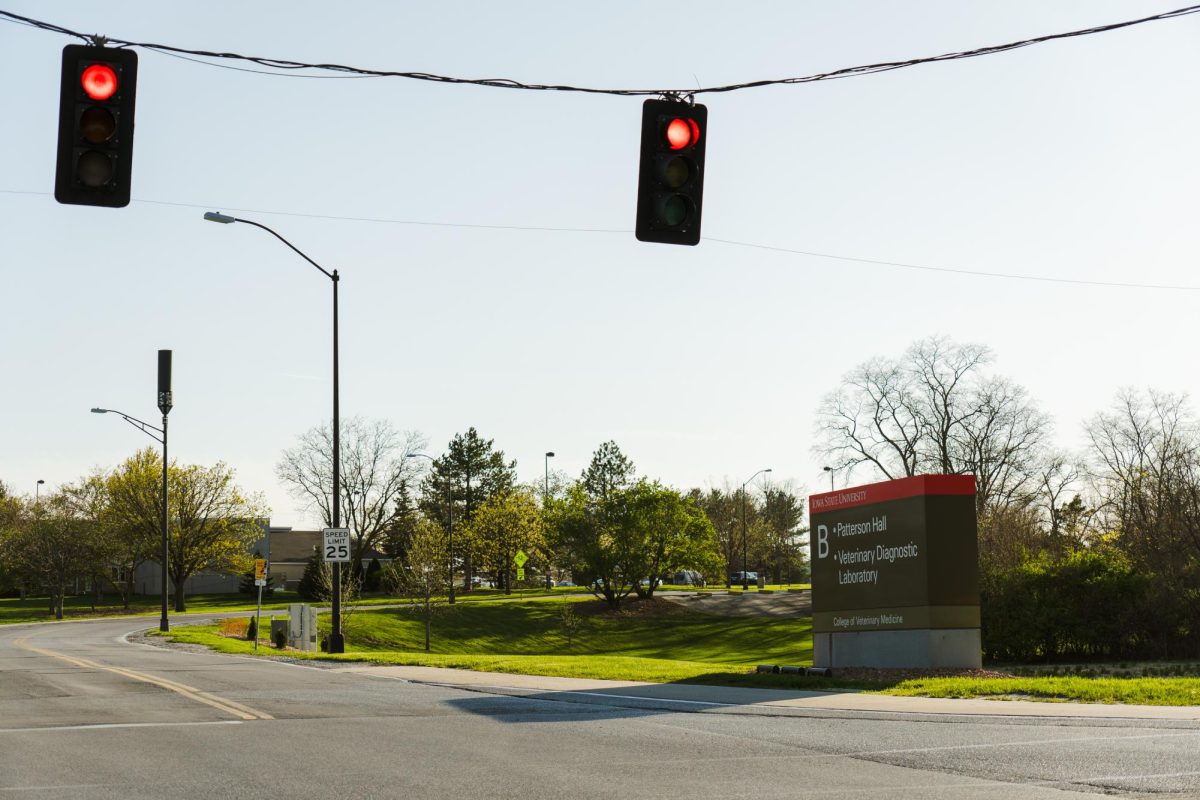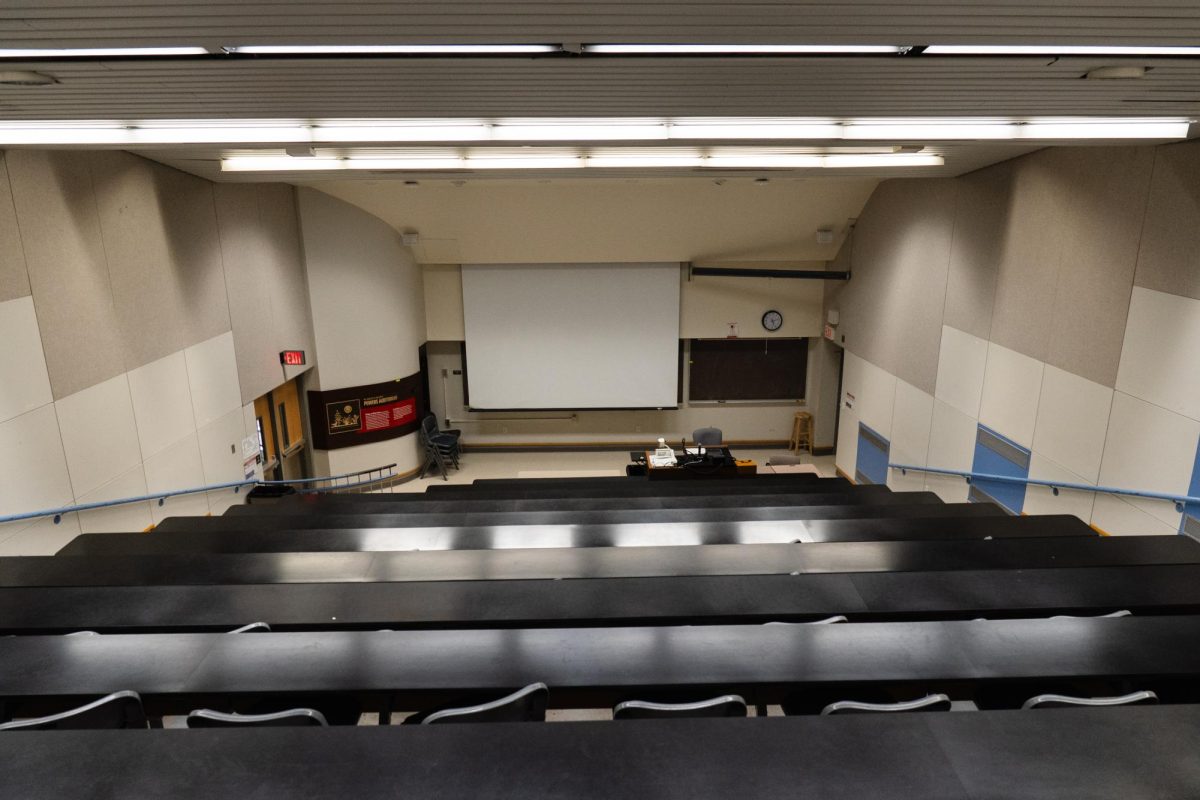Branstad signs laws against texting, drinking while driving
Charlie Coffey/Iowa State Daily
Iowa Gov. Terry Branstad delivers the first speech of the 2015 Ag Summit, which took place in Des Moines on March 7.
April 18, 2017
Texting while driving will become a primary offense in Iowa on July 1, 2017, under one of two pieces of legislation Gov. Terry Branstad signed into law Monday, according to the Des Moines Register.
Phone usage was previously considered a secondary offense, meaning officers needed another reason to stop a driver. Now, officers can pull over drivers solely for phone usage.
Under the new law, officers will now be able to pull over drivers they suspect of using their phone while behind the wheel, including “writing, sending or viewing an electronic message,” according to Senate File 234.
Included in offendable phone usage is using the internet, social media, a game and some email functions.
The legislation allows for use of voice-operated and hands-free devices that can write, send and view electronic messages and only require hand usage to activate or deactivate the device.
Branstand also signed Senate File 444, which, in the case of homicide-by-vehicle, would allow a person’s use of a cell phone while driving to be entered into evidence as reckless driving. This would allow offenders to be charged with a Class C felony and receive up to 10 years of jail time as well as a $10,000 fine.
Maggy McGary, freshman in history, sees the new law in a positive light, calling it a “really good idea” and saying she’s happy about it.
McGary, despite thinking the legislation will reduce accidents, is sure that the only way people will stop using their phones while driving is when they are pulled over and receive tickets.
As far as 10 years of jail time for homicide-by-vehicle when using a cell phone, McGary thinks that might not even be enough.
“That’s murder. That’s vehicular manslaughter,” she said. “If you murder them, you deserve more [than 10].”
McGary’s passion for the legislation comes from personal experience. One of her friends has been the victim of three hit-and-runs, with at least one resulting from texting and driving.
She said drinking and driving came into play for at least one of those as well. She hopes that the new legislation will bring forth more vigilance and responsibility when it comes to driving and the lives and health of others.
The other legislation that Branstad signed into law Monday adds a new punishment for drivers arrested or convicted of driving while intoxicated.
Following a similar South Dakota program in 2005 that saw a decrease in alcohol-related fatalities, Iowa’s initiative will require arrested or convicted drivers to abstain from alcohol and controlled substances for a certain period of time and report for Breathalyzer tests twice a day.
Tests will be administrated at a centralized location. For those who are geographically unable to make it or if testing creates a documented hardship, an approved alternative method will be applied.
Drivers who pass the test can continue with their day, but those who fail may face up to 24 hours in jail.
The new pieces of legislation, which are both supported across the political spectrum, come after Branstad mentioned in January the rising number of fatalities on Iowa roads due to driver impairment such as texting and drinking while driving.
“Together, these two bills, which passed with strong bipartisan support, will make an impact on improving highway safety in our state,” he said Monday.

















